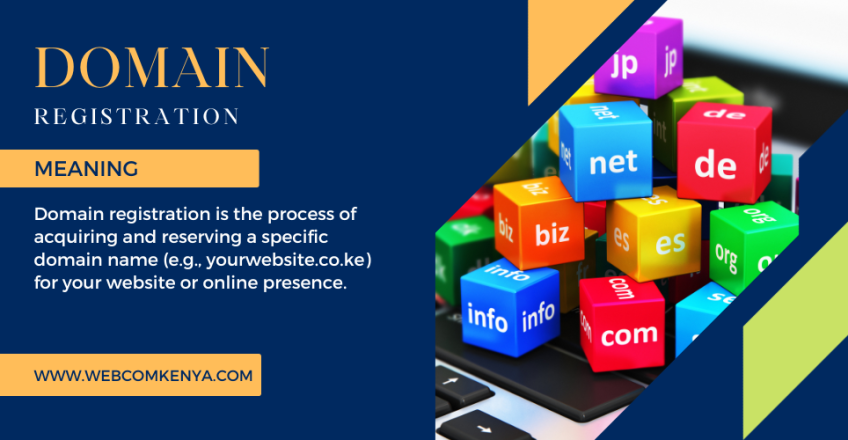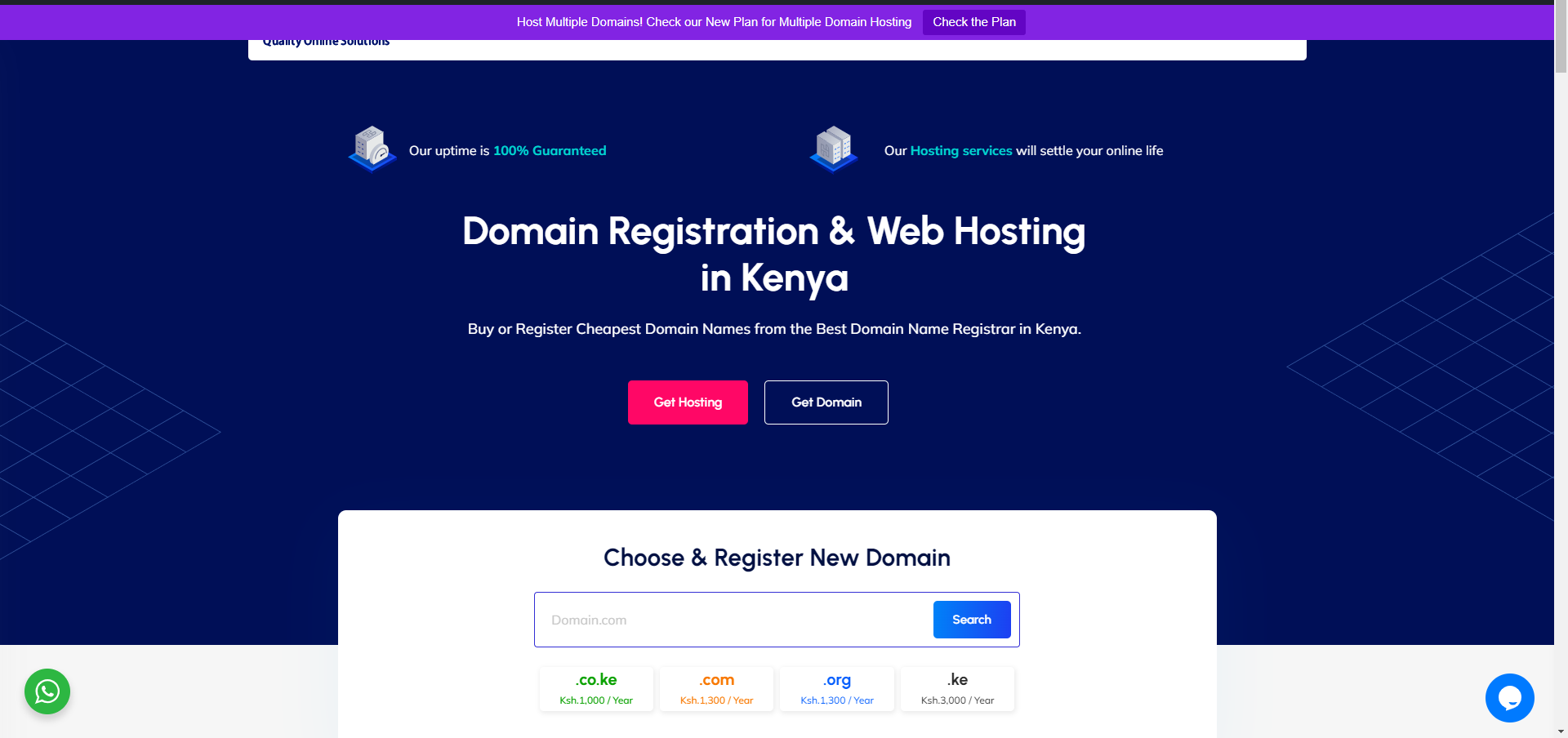
What is required for domain registration?
Domain registration is the process of acquiring and reserving a specific domain name (e.g., yourwebsite.co.ke) for your website or online presence. To register a domain, you typically need the following:
- Domain Name: The first and most crucial requirement is the domain name you want to register. It’s the web address that users will use to access your website. Make sure the domain name you choose is unique and not already registered by someone else.
- Domain Registrar: You need to choose a domain registrar, which is a company or organization authorized to manage domain registrations. Popular domain registrars including Webcom Kenya and many others. You’ll need to create an account with the registrar of your choice.
- Payment: Domain registration usually involves a registration fee. Be prepared to provide payment information, such as a credit card, to cover the registration fee.
- Contact Information: You’ll need to provide accurate contact information during the registration process. This information is used for administrative and legal purposes. Typically, you’ll need to provide:
- Registrant (Owner) Information: This is your contact information as the domain owner. It includes your name, mailing address, email address, and phone number.
- Administrative Contact Information: This contact is responsible for administrative matters related to the domain, such as renewals and transfers. It can be the same as the registrant or a separate person or entity.
- Technical Contact Information: This contact handles technical matters, such as DNS configuration. It can also be the same as the registrant or a separate entity , which is optional.
- Billing Contact Information: This contact is responsible for billing and payment-related matters. It can be the same as the registrant or a separate entity, although this depending on the registrar.
- Nameservers: You’ll need to specify the nameservers that will be responsible for managing your domain’s DNS records. This information ensures that your domain points to the correct web server. You can use your hosting provider’s nameservers or a third-party DNS service.Unlock the power of your online presence with Webcom Kenya! We offer top-tier web hosting services and are your most trusted registrar in Kenya. Experience reliable, high-speed hosting and unbeatable customer support. Get started today and watch your website soar with Webcom Kenya!
- Privacy Options (Optional): Many registrars offer domain privacy or WHOIS privacy services. These services hide your personal contact information from public WHOIS databases, helping to protect your privacy. This is especially useful if you want to keep your contact details private.
- Domain Locking (Optional): Some registrars offer domain locking or domain protection services. This adds an extra layer of security to prevent unauthorized transfers of your domain.
- Authentication and Verification: Some registrars may require you to complete an email verification process or other forms of verification to confirm your registration.
Once you’ve gathered the required information and chosen a domain registrar, you can initiate the domain registration process through their website. After successful registration, you will have ownership of the domain name for the specified registration period, which is typically one year but can be longer if you choose to register it for multiple years. Be sure to keep track of your domain’s expiration date and renew it before it expires to avoid losing ownership.
In conclusion, domain registration is a fundamental step in establishing an online presence. It involves a few essential requirements that vary depending on your specific needs and preferences. While the specifics may differ, the core elements typically include choosing a domain name, selecting a registrar, and providing accurate contact information. These basic steps are crucial for securing your online identity and ensuring that your website or online business is easily accessible to the world.
For more updates and insights, follow us on Facebook @webcomcloud.




